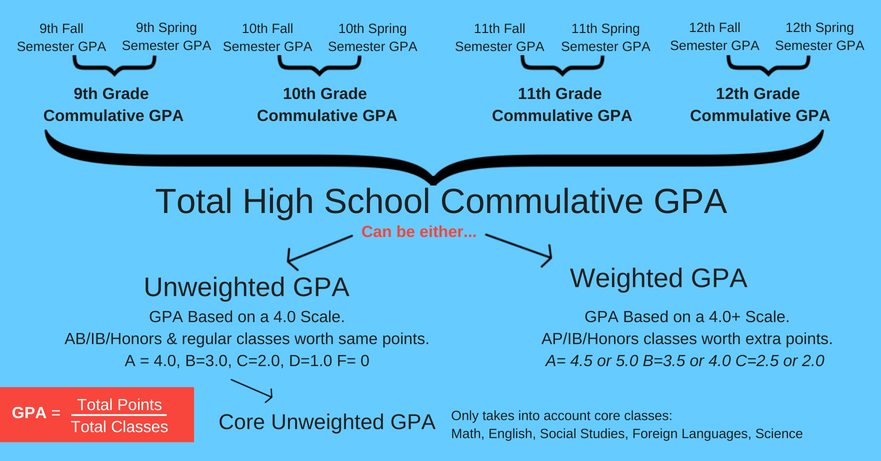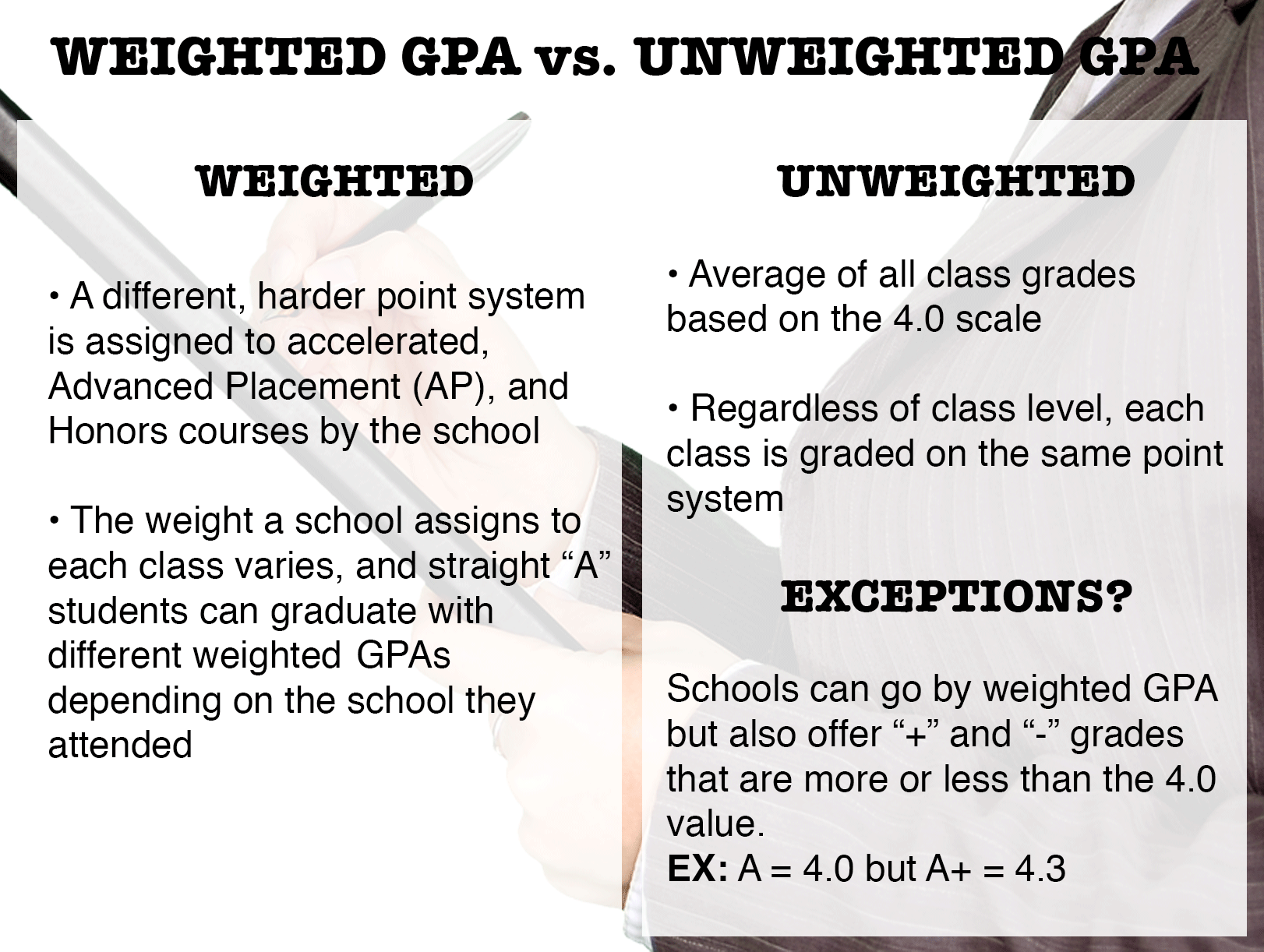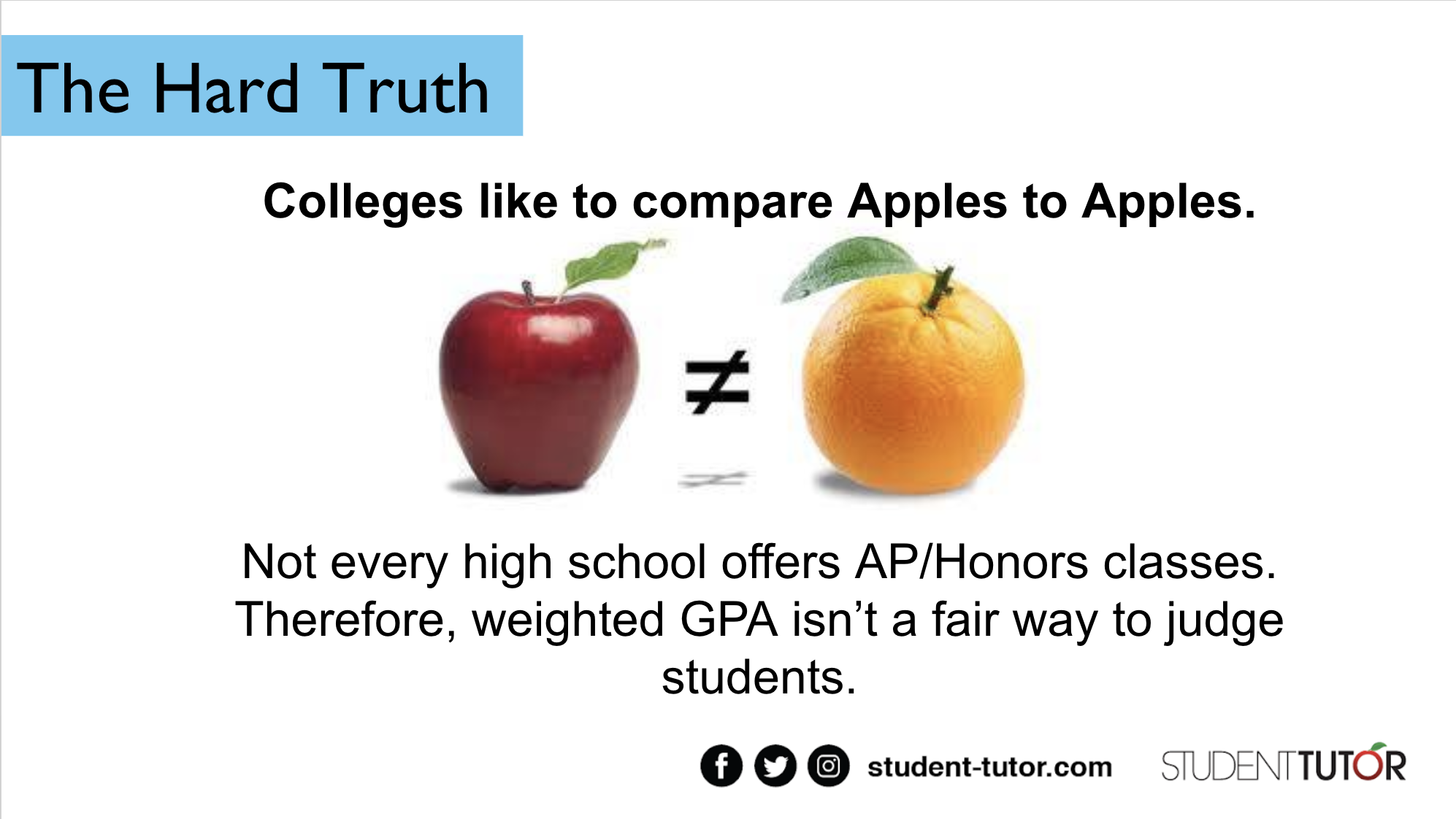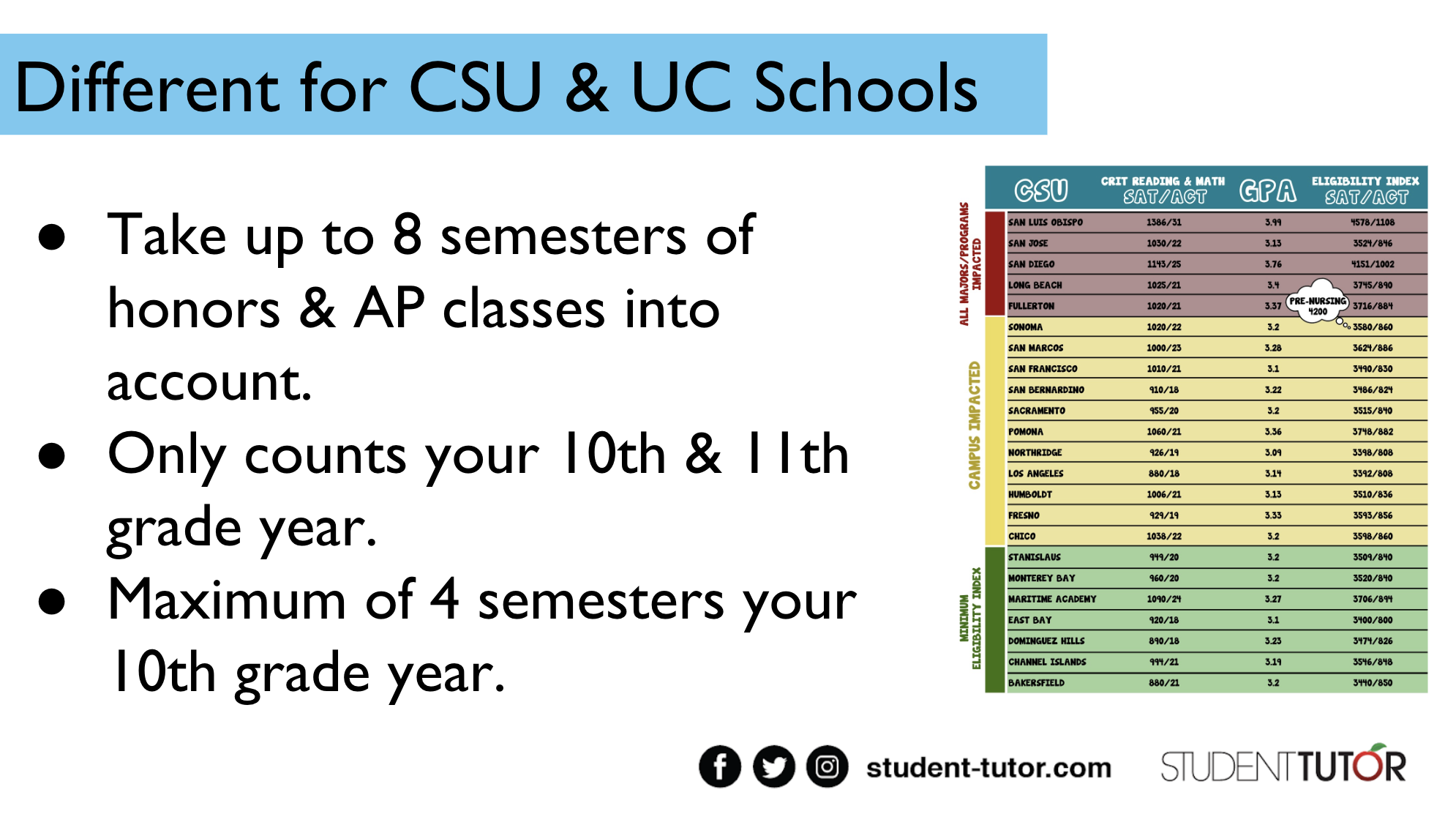You are probably reading this page wondering how to go about calculating your GPA.
However, did you know there are actually FIVE different types of High Schools GPAs?
- High School unweighted GPA.
- High School weighted GPA.
- High School core GPA.
- High School semester GPA.
- High School Commutative GPA.
Before we frantically try to give out each one let’s figure out how they all tie together and what GPA the college admission officers are looking at.

As you can tell from the graph:
- Semester GPA is your GPA from a particular semester.
- Commutative GPA is your GPA from a specific period.
- Core GPA is your GPA taking only your core classes into account.
This leaves us with unweighted and weighted GPA.
Weighted GPA and Unweighted GPA
The standard formula for calculating High school GPA is this:

However, as you may know, there are 2 different KINDS of GPA:
- Unweighted GPA: GPA based on a 4.0 scale. Where an A= 4, B =3, C=2, D=1, F=0 regardless of if it is an honors, AP, college, or regular course.
- Weighted GPA: GPA based on a 4.0+ scale. Where an A could count as 4.5 points or 5+ points, B = 3.5 or 4, C = 2.5 or 3, etc. for taking honors, AP, or college classes. This depends on what your high school decides.
Ok, so what’s the difference?
Mainly, they assign different grade point values to each grade you receive.
Here’s a quick, eyeball comparison of the two!

For example, let’s say you took 14 classes over the course of your freshman year of high school and you received:
- 8 – A’s (4.0) = 32 points
- 2 – B’s (3.0) = 6 points
- 2 – C’s (2.0) = 4 points
- TOTAL POINTS: 46
Your unweighted GPA would the average of all the points you accumulated.
With 14 being the number of classes you took.
46 / 14 = 3.29 unweighted GPA.
Now let’s say that your school gives an extra point for honors classes and you took two honors classes.
Therefore, you would have an extra 2 points!
46+ 2 = 48
You would still divide by the number of classes you took.
48/14 = 3.42 weighted GPA.
Great! So, what does this mean for how I calculate my high school GPA?
First and foremost you need to know what your High School goes by.
- Some high schools give 0.5 extra for honors, 1.0 extra for AP, extra points for A+, etc. (This is creates your weighted GPA)
- Other high schools don’t offer any of the above. (They don’t have weighted GPAs)
What your high school goes by will help you to determine your class rank…
However, what truly matters for your success is not what your high school goes by, but what the colleges you are applying to go by.
Every college is different… so please don’t take what we are about to state as a gospel!
Unweighted GPA is What Matters
The majority of colleges look primarily at your:
- Unweighted GPA.
- Strength of your curriculum, based on what your school offers.
Why do they do this?
Because colleges like to compare apples to apples.
Since not all high schools offer AP/honors classes and give different point systems, the only fair way to judge students is based on the unweighted GPA; THEN, the rigor of the course load, based on what the school had to offer.

In addition, they only look at your high school core GPA.
What classes are included in your high school core GPA?
- English: English 1-4, American Literature, creative writing.
- Math: Algebra 1-3, Geometry, statistics, Calculus.
- Natural of physical science: biology, chemistry, physics, etc.
- Social science: American History, civics, government
- Additional: comparative religion, Spanish 1-4, foreign languages.
Classes that are not core courses include:
- Classes in non-core areas, fine arts or vocations such as drivers education, typing, art, music, physical education or welding.
- Personal skill classes such as personal finance or consumer education.
- Classes taught below grade level, at a slower pace or with less rigor or depth. These classes are often titled basic, essential, fundamental or foundational.
- Classes that are not academic in nature such as film appreciation, video editing, or greenhouse management.
With that said, there are exceptions to this rule.
For example, California State University & University of California schools DO take honors & AP classes into account.

As shown above, CSU/UC schools don’t take your 9th or 12th-grade scores into account and only take a maximum of 8 semesters of honors & AP classes.
You can read more on this topic by checking out the CSU admissions requirement blog article we wrote.
Please Note: Elite university like UC Berkeley, along with many of the other UC schools, DO look at 9th and 12th grade year.
So many if’s and but’s… where do I start!?
I know… we are sorry if this is confusing you, but since every high school and college is different… it can be hard to explain.
Lucky for you, we have developed a GPA calculator where you can plug in your current core GPA, test scores, and grade level to discover actionable tips you need to take today to ensure college, scholarship, and career success!
[x_button shape=”square” size=”x-large” float=”left” href=”https://student-tutor.com/high-school-gpa-calculator/” title=”Access Free High School GPA Calculator” info=”none” info_place=”top” info_trigger=”hover”]Access Free High School GPA Calculator[/x_button][/cs_text][/cs_column][/cs_row][/cs_section][/cs_content]